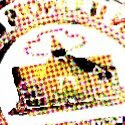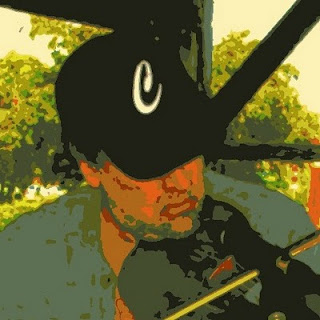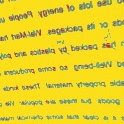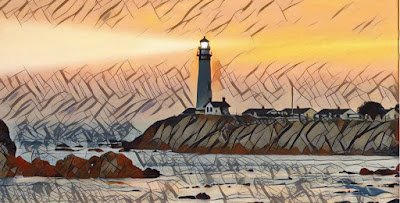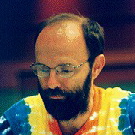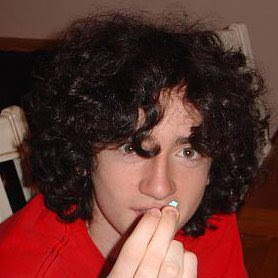Frank McCourt
Frank McCourt, Author of Angela's Ashes, Tis, dies at 78, Baltimore Sun
Frank McCourt, Author of Angela's Ashes, Dies, Time Magazine
Memoirs and McCourt, New York Times
Now here's a guy I find worthy of studying, though I've never read any of his books. The most interesting thing to me is his idea of drawing the inner voice out of students; this is something I've been working on for years. "Flat" and "dull" are descriptions of writing by students who are essentially cautious, not themselves flat and dull; almost everyone has the ability to really say things that are interesting. His assignments are interesting too. One is to describe last night's dinner- not your favorite, not the typical, but
last night's; down to the detail, with color, and including where everything came from. Another one I read somewhere was an exploration of the art of writing excuses.
I got stuck on his discovery that the simple present tense allowed him to apply a kind of child's detachment and accuracy to his teaching (maybe I should read this book?)...this apparently contributing to the overwhelming success of his book. I have never been a big fan of the simple present tense. I am, however, a fan of children, and of detachment.
It was also pointed out that his portrayal of Catholic priests came at just the right time...nevertheless, a study of his life shows that he at least earned the right to jab them and be a little disdainful. I'd like to study his life more. As a writing teacher myself, who goes home to try to find my "voice" on rare holidays, I could do worse.
flat roof society
These are hard times to be working in Faner Hall, our home, a concrete building of enormous stature in the center of campus. They are fixing all the flat roofs; well, actually, they are pouring smelly stuff on them, and who knows whether the water will have someplace to go or not? Judging from the last rainstorm, a couple of nights ago, not. Water that has nowhere to go eventually finds its way down, and ruins everything beneath it. It's inevitable.
Now some people claim that Faner is the ugliest building they have ever seen; its concrete walls are splotched, moldy, faded, or marked up; graffiti is impossible to wash off; its pockmarked concrete is a drab background to our offices, computer labs and social life. I've come to love it though, because it makes virtually everything near it look good. The pop art that I've done (see below) contrasts natural things with its square concrete and makes nature look so colorful that saturation of the colors (which I'm experimenting with) is really unnecessary.
My idea about the roofs was this: Why not have those roof gardens that you see in Chicago? It would be stunningly gorgeous against the bleached, splotched gray concrete squares of Faner. But, apparently, you need a lot of weight support to put that much dirt up there on a flat roof. At first I thought, solve ten problems at once; the soil will catch and hold the water, and the flowers and vegetables will produce for people and make a drab environment into a hopeful one. But, reality set in; there's no way they could put enough dirt on these things to make it work. Or is there?
Second, a structure, that was heavy enough to hold a slanted clear greenhouse roof structure, strong enough to not break in the next derecho, strong enough to be held in place down in the flat bottom of the roof. Surely such things are made. Surely the heat generated by a greenhouse-type roof could be useful to
somebody, if not the powers that be, the powers that make power.
The smells of roofing petroleum permeate the building. At the same time, a leak came through the ceilings of our lab, all the way down on the first floor, threatening the computers and even servers, and displacing us for a couple of days. Overall our life here is good; I've come to love the graying square pillars & often wish I had my camera here more often...but, I think this place could be improved with a certain attention to what the needs of our particular ecoculture are. In the Dominican Republic I was impressed by a back lot of an educational institution, in which the workers had grown a garden: mangos, yuccas, an avocado tree; bananas, plantains, you name it. The workers, those who cleaned and kept the building up, were simply allowed to control the place, and it was their paradise, not to mention source of food for countless dinners. Not that I have any time to tend to such things, these days; we have a garden, and are actually growing some things, but most nights, I fall asleep grading, without setting a foot on real earth or having but a moment to be outside with family or anyone else. I think though, that collectively, the USA, specifically Carbondale and SIUC, could be harnessing its space and incoming power sources more successfully. To have water just sit there, and sun beat down on the place day after day (obviously hoping that the sun doesn't warm up the water and tar combination into a kind of smelly, mushy fossil-collecting soup) is basically not forward thinking. As one who does not add graffiti to the walls, but notices how hard it is to remove it, I say, put pretty stuff all over the place...it will make a difference.

no more textbooks
I gave a final exam based on quotes from the following links:
BBC News. June 8, 2009. Online push in California schools.
http://news.bbc.co.uk/2/hi/americas/8090450.stmCaleb Johnson, June 9. 2009. California moves toward online textbooks. Switched.
http://www.switched.com/2009/06/09/california-moves-toward-online-textbooks/Associated Press, August 18, 2005, Look Ma! No schoolbooks! Wired
http://www.wired.com/science/discoveries/news/2005/08/68578E-Textbooks- For real this time? Jan. 3, 2008. Inside Higher Ed.
http://www.insidehighered.com/news/2008/01/03/ebooks Ashleigh Jardine, Feb. 11, 2009. Textbooks going paperless, Andrews University.
http://www.andrews.edu/news/2009/02/etextbooks.htmlChristopher Dawson, Feb. 5, 2009, Textbooks? Textbooks? We don’t need no stinkin’ textbooks! ZDNet Education.
http://education.zdnet.com/?p=2127It wasn't until after I graded the finals that I realized that my students had been 14 to 0 in favor of online textbooks.
This stunning result does not necessarily mean that the same percentage, 100%, truly favor online textbooks, which clearly have some disadvantages (among them, you can't write native words in the margins). The results are skewed by the fact that the job of the test-taker, in a timed situation, is to take quotes from these articles and use them to make arguments; the arguments in favor are certainly clearer, and easier to use (by virtue of being direct from the author, as opposed to second-hand, the author quoted x as saying...). The results are further skewed by the fact that they may suspect I am in favor of it or believe this is the essay I would want.
But most of all, the results are skewed by the fact that, as university students, they have now become accustomed to the huge textbook monopoly and its results, because of which they have to pay $80, $100 or more for books that are "outdated" within years and can't be resold to classmates or returned for half price.
My own feeling is that we in the ESL business should just become very good at using "authentic" materials, and make them where they don't otherwise exist; we should at least listen to our students about the issue. It was not only 14 to 0, it was a rather strong 14 to 0. Very few even had time for the opposing argument, although that may have had more to do with their writing skills in general.
dominican republic
Leverett, T. (2009, June).
Digital fluency and the role of the teacher. Invited Plenary, Annual Conference for Teachers of English, Santiago (Jun. 8 & 9) and Santo Domingo (June 11 & 12), Dominican Republic. Included two workshops:
Using weblogs to integrate writers into target communities and
Technology as gateway to opportunity.
My week in the Dominican Republic was fantastic; I especially loved the people and the food. Also great was the music and the Caribbean atmosphere, the old downtown of Santo Domingo, for example, which was the earliest settlement in the New World, or the old town of Santiago, where it rained a lot but we felt we were in the heart of the country. This is a country where people have a lot of spirit, and I made close friends with English teachers of a very interesting and beautiful country.
The big news there is the possibility of Dominican teachers forming a TESOL, or organization of teachers, but I am less involved in our own US TESOL to help make that happen; I would certainly love to contribute. I'd love to see them get on
this list as soon as possible. The same holds, apparently, for teachers from Guatemala who were there with us.
I wrote about the trip personally, and you are welcome to read a
full report at your leisure. Let's just say, what a wonderful place. I feel that I learned more than they did, and one thing that would make me very happy would be to be of continuing assistance to Dominican teachers as they struggle to integrate technology and improve the standard of English teaching in their nation. I think it's important for teachers to be connected and feel connected to teachers in other parts of the world, and to this end, I felt the trip was a success. I wish them luck in the future also, and hope to see some Dominicans up here in Illinois one of these days. Finally, I close with a poster picture of Santiago, where it rained hard during the conference, and at other times, and, while the rain put a kind of sad feeling onto a joyous and light-feeling place, it didn't diminish the beauty in any way. My plenary, in fact, was given here during a thunderous lightning storm, outside and under these various canvas awnings. It was remarkable, in every way.

Labels: bib, personal, weblogs
from out and around
twitterEnsley, G. (2009, June 13).
Twitter offers democracy, but not a revolution.
Tallahassee.com. http://www.tallahassee.com/article/20090613/BREAKINGNEWS/906130305/Gerald+Ensley++Twitter+offers+democracy+but+not+a+revolution. Accessed 7-09.
Lott, C. (2008, Dec. 8).
Twitterpated Social Signaling.
Ruminate. http://chrislott.org/story/twitterpated-social-signaling/. Accessed 7-09.
toolsDrew Buddie and the Indispensable tools wiki:
Indispensable ICT tools for educators. What a list!
mind readingBorel, B. (2009, June 12).
Mind-reading tech may not be far off.
Popular Science. http://www.popsci.com/scitech/article/2009-06/mind-reading-tech-way. Accessed 7-09.
second lifesewenviro (2009, June 4).
Kossacks in second life.
Daily Kos. http://www.dailykos.com/storyonly/2009/6/4/732336/-Kossacks-in-Second-Life. Accessed 7-09.
misc.Jacobs, L. & Hyman, J. (2009, May 20).
17 ways college campuses are changing.
US News & World Report. http://www.usnews.com/blogs/professors-guide/2009/05/20/17-ways-college-campuses-are-changing.html. Accessed 7-09.
Marks, O. (2009, May 23).
The groundswell of social media backlash.
ZDNet. http://blogs.zdnet.com/collaboration/?p=578&tag=nl.e539. Accessed 7-09.
Wainewright, P. (2009, July 6).
Free is not a business model.
ZDNet.. http://blogs.zdnet.com/SAAS/?p=807&tag=nl.e539. Accessed 7-09.
Labels: bib, twitter







